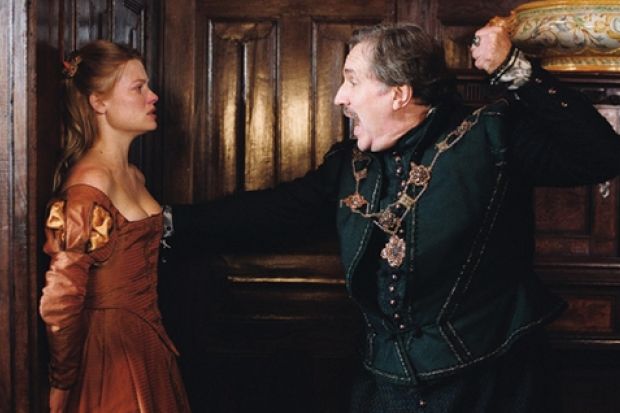The Princess of Montpensier
Directed by Bertrand Tavernier
Starring Mélanie Thierry, Lambert Wilson and Grégoire Leprince-Ringuet
Released in the UK on 8 July
This is an intriguing choice of project for an auteur like Bertrand Tavernier. Adapted from a short story by Madame de La Fayette, The Princess of Montpensier is a costume drama set in 1562, during the reign of Charles IX. Against the background of a vicious war in which Catholics are in the process of suppressing uppity Huguenots, the Marquis de Mézières (Philippe Magnan) compels his daughter, Marie (Mélanie Thierry), to marry the Prince de Montpensier (Grégoire Leprince-Ringuet).
She is unwilling not just because she has never met the prince, but also because she is passionately in love - and always has been - with Henri, Duc de Guise (Gaspard Ulliel), known as le Balafré (Scarface). Reluctantly, she submits to her father's will; after the wedding, however, the prince is summoned to the battlefield. He sends Marie to a castle with his mentor, the Comte de Chabannes (Lambert Wilson), who proceeds both to educate and to fall in love with her. In due course, Scarface seeks her out along with his friend the Duc d'Anjou (Raphaël Personnaz), who also has designs on her. With no fewer than four men on her trail, what is a girl to do?
Madame de La Fayette's premise is ingenious. It takes us, as do many dramas with contemporary settings, to the question of what constitutes "true" love. Is it the early relationship with our childhood sweetheart, or can that be superseded by something else? Tavernier and his scriptwriter, Jean Cosmos, have turned what might have been a routine doublet-and-hose yarn into something that transcends the genre. For one thing, they ensure that the relationships between their characters are persuasive, not just by the quality of the writing but by their casting.
Melanie Thierry is excellent in the title role. She needs to be, as she features in almost every scene of the film. Her emotions need to be transparent, and she makes them so without over-enunciating them. Several scenes are memorable for her restraint, not least Marie's wedding night, an occasion notable for the audience of noblewomen at the bedside, who report to Marie's father on its progress.
Ulliel (as Scarface) is exactly as he should be - a bit of a dog, ready to skewer anyone who crosses him but politic enough to bide his time. Leprince-Ringuet, as the prince, is moody and withdrawn, perpetually cheesed off at the knowledge that his wife doesn't love him, and frustrated by his inability to change that. "I have longed for a smile from you," he tells her. "Foolish hope!"
Wilson is a superb bit of casting. He is the only middle-aged man among the principals, and his eloquent portrayal of Chabannes' divided loyalties - embarrassed by his love for Marie but determined not to betray his former pupil the prince - provides one of the most powerful of the various emotional vectors in the film. He also provides its moral touchstone. It is he who, at the beginning of the film, withdraws from active service, asking: "How can people of the same blood and the same faith kill each other in the name of God?" And it is he who provides an answer to the question of which man Marie should accept as her true love.
This isn't a weepie in the Hollywood manner - Tavernier has never been that kind of film-maker - and in any case it is too underplayed for that, much to its advantage. Not that it is bereft of emotional intensity, but the playing is somehow interiorised. At one point someone accuses Marie of possessing "innocence dur". That phrase might be applied to the film as a whole. Its innocence lends it credibility; its toughness bespeaks emotional depth.
Where does this film take us? To the limits of human experience, as all good films should. It is about a woman to whom four different men present themselves, her destiny being dependent on the choice she makes. Her arduous journey to the point at which she follows the dictates of her heart makes for an enthralling tale, and one of the most accessible and engaging of Tavernier's films.
Register to continue
Why register?
- Registration is free and only takes a moment
- Once registered, you can read 3 articles a month
- Sign up for our newsletter
Subscribe
Or subscribe for unlimited access to:
- Unlimited access to news, views, insights & reviews
- Digital editions
- Digital access to THE’s university and college rankings analysis
Already registered or a current subscriber? Login
